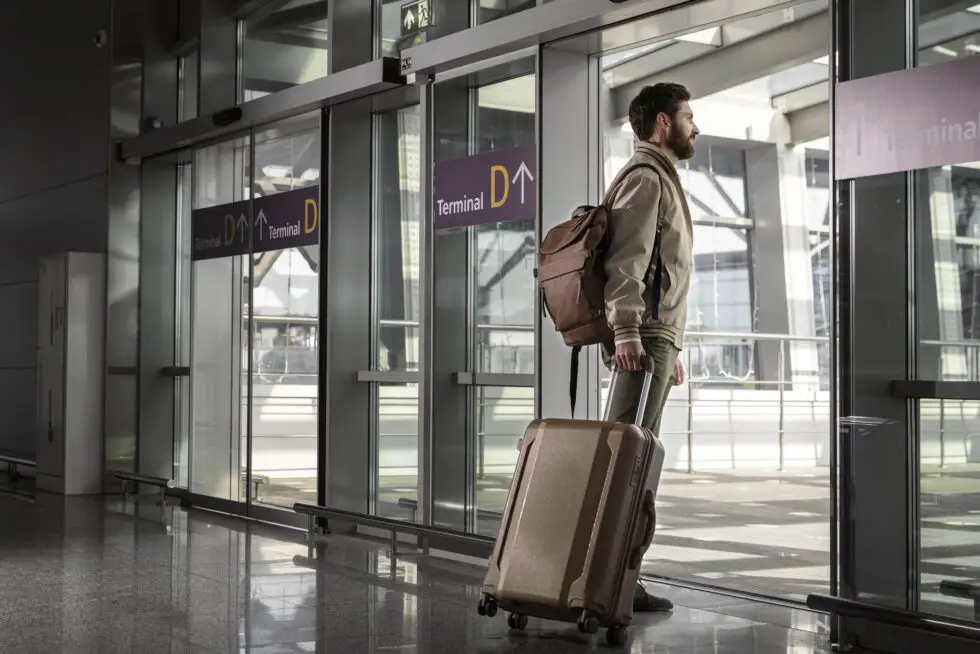What is § 38a AufenthG?
Section 38a of the Residence Act is a crucial regulation for people who are already recognized as long-term residents in another EU member state and are now seeking a residence permit in Germany. This regulation opens up new opportunities for you if you wish to stay in Germany for longer than 90 days. But what exactly is behind it and for whom is this Residence permit relevant?
Definition and background
§ Section 38a AufenthG regulates the residence permit for foreigners who have long-term resident status in another EU country. These persons have the right to move to Germany under certain conditions and to live and work here.
It is important to note that this Residence permit is generally issued with an ancillary provision (employer provision) for 12 months. Once the 12 months are up, gainful employment is generally subject to § 38a AufenthG.
The legal basis is Section 38a (1) AufenthG:
Text of the law: "A foreigner who holds the legal status of a long-term resident in another Member State of the European Union shall be granted a residence permit if he or she intends to stay in the federal territory for longer than 90 days. § Section 8 (2) shall not apply."
- Authorization to enter and stay in Germany
- Applies to persons with a long-term residence permit in another EU country
Who can benefit from Section 38a AufenthG?
This Residence permit is aimed at people who are already recognized as long-term residents with a residence permit in another EU member state. This means that you already have stable living conditions in your current country of residence. This regulation is relevant for people purely for employment, highly qualified specialists, the self-employed or people who wish to come to Germany to study.
- Long-term residents in another EU country
- People for pure employment
- Professionals and the self-employed
- People who would like to move to Germany to study or train
Requirements for the residence permit according to § 38a AufenthG
In order to obtain a residence permit in accordance with Section 38a AufenthG, certain requirements must be met. This regulation mainly applies to people who are recognized as long-term residents in another EU member state. It is important that you know all the criteria in order to successfully apply for Residence permit . Here you can find out which requirements must be met for the permit to be issued.
Right of residence in an EU member state
The most important requirement for Residence permit in accordance with Section 38a AufenthG is that you are already recognized as a long-term resident in another EU country. This means that you have a stable right of residence in this country and have fulfilled the requirements there, such as securing your livelihood.
Important points:
- Long-term residence permit in another EU country(proof of permanent residence EU/EC).
- Secured livelihood in the current EU country
- No ongoing proceedings against Residence permit in your current country of residence
If you meet these requirements, you can apply for a residence permit in Germany.
The residence permit in accordance with Section 38a (1) AufenthG is initially issued for 12 months with an ancillary provision (employer commitment). After that, it continues to run without being tied to an employer. This is based on Section 38a (4) AufenthG.
Legal text: "A residence permit issued in accordance with paragraph 1 may only be subject to an ancillary provision in accordance with Section 34 of the Employment Ordinance for a maximum of twelve months. The period referred to in the first sentence shall begin with the first permission for employment when the residence permit is issued in accordance with paragraph 1. After expiry of this period, the residence permit shall entitle the holder to pursue gainful employment."
Employment opportunities and special regulations
The residence permit for long-term residents in other member states of the European Union in accordance with § 38a AufenthG also entails certain employment rights. You may take up employment in Germany if the Federal Employment Agency agrees. This applies both to employment and to taking up self-employment if you meet the requirements of § 21 AufenthG.
The legal basis for the employment opportunities lies in Section 38a (3) AufenthG.
The most important regulations:
- Employment in Germany after approval by the Federal Employment Agency
- Possibility of self-employment if the requirements of § 21 AufenthG are met
- Special regulations for certain occupational groups such as seasonal workers or cross-border workers
Remember that in some cases special rules may apply that affect your application. For example, there are exceptions for seasonal workers or cross-border workers that affect special employment relationships. Therefore, check carefully which regulations apply to your situation to ensure that your application runs smoothly.
How do you apply for a residence permit according to § 38a AufenthG?
Applying for a residence permit in accordance with § 38a AufenthG may seem complicated, but with clear step-by-step instructions, the process is easy to manage. To ensure that your application runs smoothly and successfully, you should follow the steps below and prepare the necessary documents in good time.
Step-by-step guide to the application for § 38a AufenthG
The application for a residence permit in accordance with § 38a AufenthG takes place in several stages. Here are the most important steps you need to follow:
- Check the requirements: Make sure that you meet the conditions, e.g. long-term residence permit in an EU member state.
- Register under registration law: The next step is to register under registration law in your new place of residence.
- Appointment at Foreigners' office: Make an appointment at the Foreigners' office responsible for your place of residence.
- Fill in the application form: Fill out the relevant application form correctly and completely. Missing or incorrect information can delay the process.
- Submit documents: Submit all required documents to Foreigners' office by the deadline.
- Examination of the application by Foreigners' office: After submission, the authority will review your application. If necessary, the approval of the Federal Employment Agency will also be obtained.
- Obtaining the residence permit: If all requirements are met, you will receive the Residence permit.
Required documents and deadlines
Careful preparation of the documents is crucial to avoid unnecessary delays. Make sure you have all the necessary documents to hand:
- Valid passport
- Proof of permanent residence EU/permanent residence EC (example an Italian permanent residence permit. Directive is 2003/109/EC of 25.11.2003).
- Proof of secure livelihood (e.g. proof of salary, employment contract)
- Proof of residence (e.g. registration certificate in Germany)
- Proof of your professional activity or intention to take up self-employment
- Proof of health insurance
Observe deadlines:
- Application before 90 days have passed: You must submit the application within 90 days of entering Germany.
- Processing time: The processing time may vary depending on Foreigners' office , but please allow for a processing time of several weeks to months.
It is important that you take care of all documents in good time and find out about the exact deadlines in your region. This will ensure that your application for a residence permit in accordance with § 38a AufenthG is successful.

Advantages of the residence permit according to § 38a AufenthG
The residence permit according to § 38a AufenthG offers you many advantages if you want to live and work in Germany long-term. Especially for people who already have a long-term residence permit in another EU country, this Residence permit can pave the way for new professional and personal opportunities in Germany. What specific advantages can you expect?
Authorization for employment and self-employment
With a residence permit in accordance with § 38a AufenthG, you receive the right to work in Germany. This is a decisive advantage for skilled workers who wish to continue or start their professional career here. You can take up employment as well as work on a self-employed basis, provided the relevant requirements are met.
The advantages at a glance:
- Work permit: Entitles the holder to work as soon as the Federal Employment Agency has given its approval.
- Self-employment: You are allowed to work as a self-employed person if you fulfill the conditions of § 21 AufenthG.
- Career flexibility: Residence permit opens up numerous career opportunities, from employment to setting up a business.
These authorizations allow you to flexibly shape your professional career in Germany and explore different fields of activity. This is a great advantage, especially for qualified specialists.
Transition to indefinite Settlement permit
Another important advantage of the residence permit according to § 38a AufenthG is the possibility of changing to a permanent Settlement permit residence permit at a later date. This offers you long-term security and stability in Germany, both for your professional and personal future.
Important points for the transition:
- Path to Settlement permit: After 5 years with § 38a AufenthG you have the possibility to apply for a Settlement permit .
- Prerequisites: To transfer to Settlement permit , you must, among other things, prove that your livelihood is secure and that you have sufficient language skills.
- Long-term prospects: Settlement permit offers you the opportunity to live and work in Germany permanently without having to extend your residence permit.
By transferring to Settlement permit , you will enjoy a permanent residence permit and full integration opportunities in Germany. This not only gives you legal security, but also long-term prospects for your future.
Important!!!! With the new Naturalization Act, you can also apply for Naturalization after 5 years in accordance with § 10 StAG. It is important that, in addition to legal residence, you also meet all other requirements for Naturalization.
Common mistakes and solutions when applying for Section 38a AufenthG
Applying for a residence permit under Section 38a AufenthG can seem complicated at first, but many problems can be easily avoided with the right preparation. To avoid delays or rejections, you should be aware of the most common mistakes and know how to prevent them.
Incomplete documents
One of the most common errors when submitting an application is incomplete or incorrect documentation. This can lead to delays or, in the worst case, even to your application being rejected. Important evidence is often missing or outdated documents are submitted.
How to avoid mistakes:
- Use a checklist: Use a checklist to make sure you have submitted all the required documents. Typical documents include your passport, proof of your long-term residence permit in another EU country, proof of your livelihood, employment contract and a registration certificate.
- Timeliness of documents: Make sure that all documents are up to date, especially proof of income and employment. Expired proof can delay the process considerably.
- Consultation with Foreigners' office: If you are unsure whether your documents are complete, please consult the responsible Foreigners' office before submitting them.
Tip: Incorrectly submitted documents will not be accepted and will result in a longer application period because the documents have to be resubmitted. You should therefore check carefully before submitting the application.
Missed deadlines and their consequences
Another common mistake when submitting an application is ignoring important deadlines. If you do not submit the application on time, this can lead to serious problems, such as the rejection of your application or the loss of your residence permit in Germany.
Important deadlines that you should observe:
- Application within 90 days of entry: The application must be submitted no later than 90 days after your entry into Germany. Late applications may result in you staying in Germany illegally.
- Allow for processing time: It can take several weeks to months to process the application. You should therefore allow sufficient time and submit the application as early as possible.
- Deadlines for submitting evidence: If Foreigners' office requests additional evidence, you often only have a limited amount of time to submit it. Strictly adhere to these deadlines to avoid unnecessary delays.
It is essential to keep a close eye on the specified deadlines so as not to risk any unnecessary complications. Submitting your application on time ensures a smooth process and protects you from undesirable consequences.
Naturalization with § 38a AufenthG?
Conclusion on Section 38a AufenthG
The most important points on Section 38a AufenthG summarized
- Access for long-term residents in the EU: Residence permit in accordance with Section 38a AufenthG enables people who are recognized as long-term residents in another EU Member State to move to Germany.
- Employment and self-employment opportunities: You can take up dependent employment (with the approval of the Federal Employment Agency) as well as self-employment if the requirements of § 21 AufenthG are met.
- 12 months with employer commitment thereafter without: The Residence permit is initially issued for 12 months with employer commitment. After 12 months, the Residence permit continues to run as § 38a AufenthG without employer commitment.
- Transition to permanent Settlement permit: Once your temporary residence permit has expired, you can apply for a permanent Settlement permit if certain conditions are met.
Conclusion and future of Section 38a AufenthG
§ Section 38a AufenthG offers you the opportunity to gain a professional and personal foothold in Germany. For skilled workers and the self-employed in particular, this title is a valuable option for settling in Germany temporarily and aiming for permanent Settlement permit status in the long term.
FAQ - Frequently asked questions about § 38a AufenthG
The residence permit pursuant to Section 38a AufenthG enables persons who are recognized as long-term residents in another EU Member State to move to Germany and work here or take up self-employment.
The residence permit according to § 38a AufenthG is valid for as long as it is issued. It is tied to the employer for 12 months. After that, it continues to function without being tied to an employer.
No, people with a residence permit in accordance with § 38a AufenthG are generally not entitled to social benefits in Germany.
No, the Residence permit in accordance with § 38a AufenthG lasts until the period issued by Foreigners' office and must then be extended.
Naturalization is easily possible with a residence permit in accordance with § 38a AufenthG. To do so, you must have lived in Germany for at least 5 years with § 38a AufenthG and meet all other requirements.










